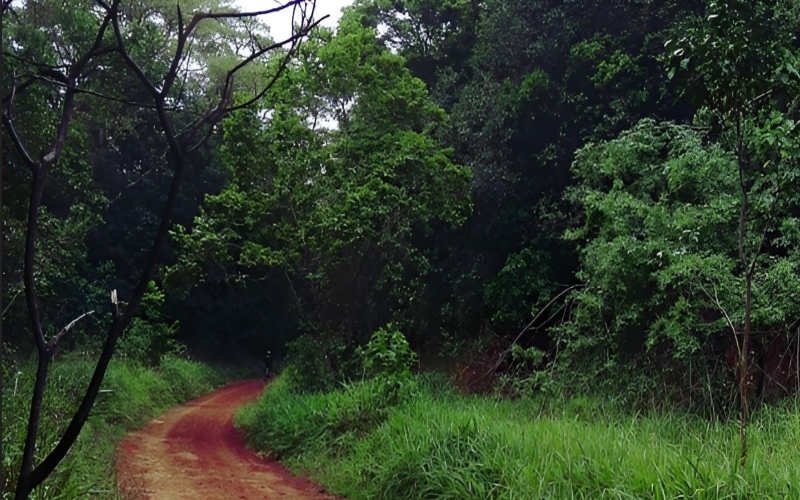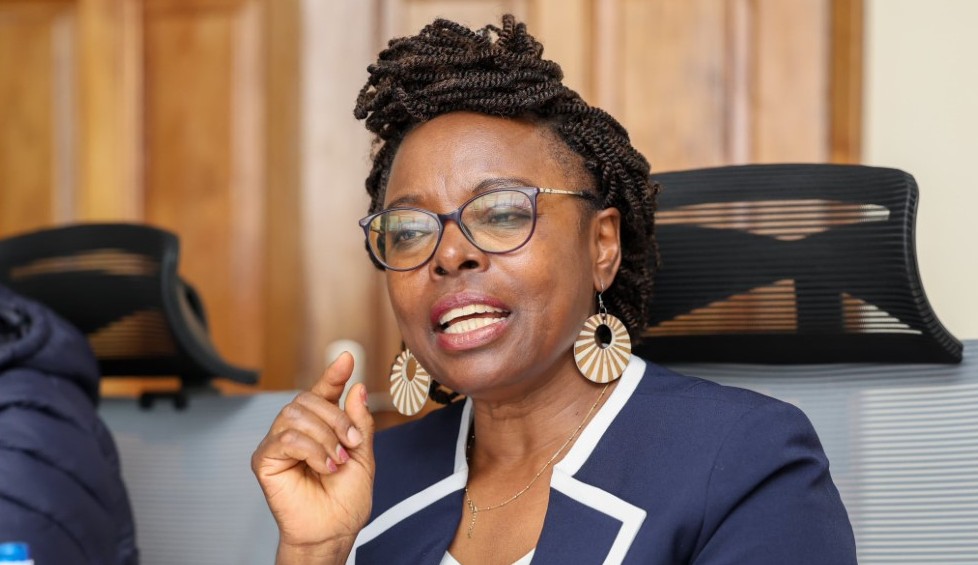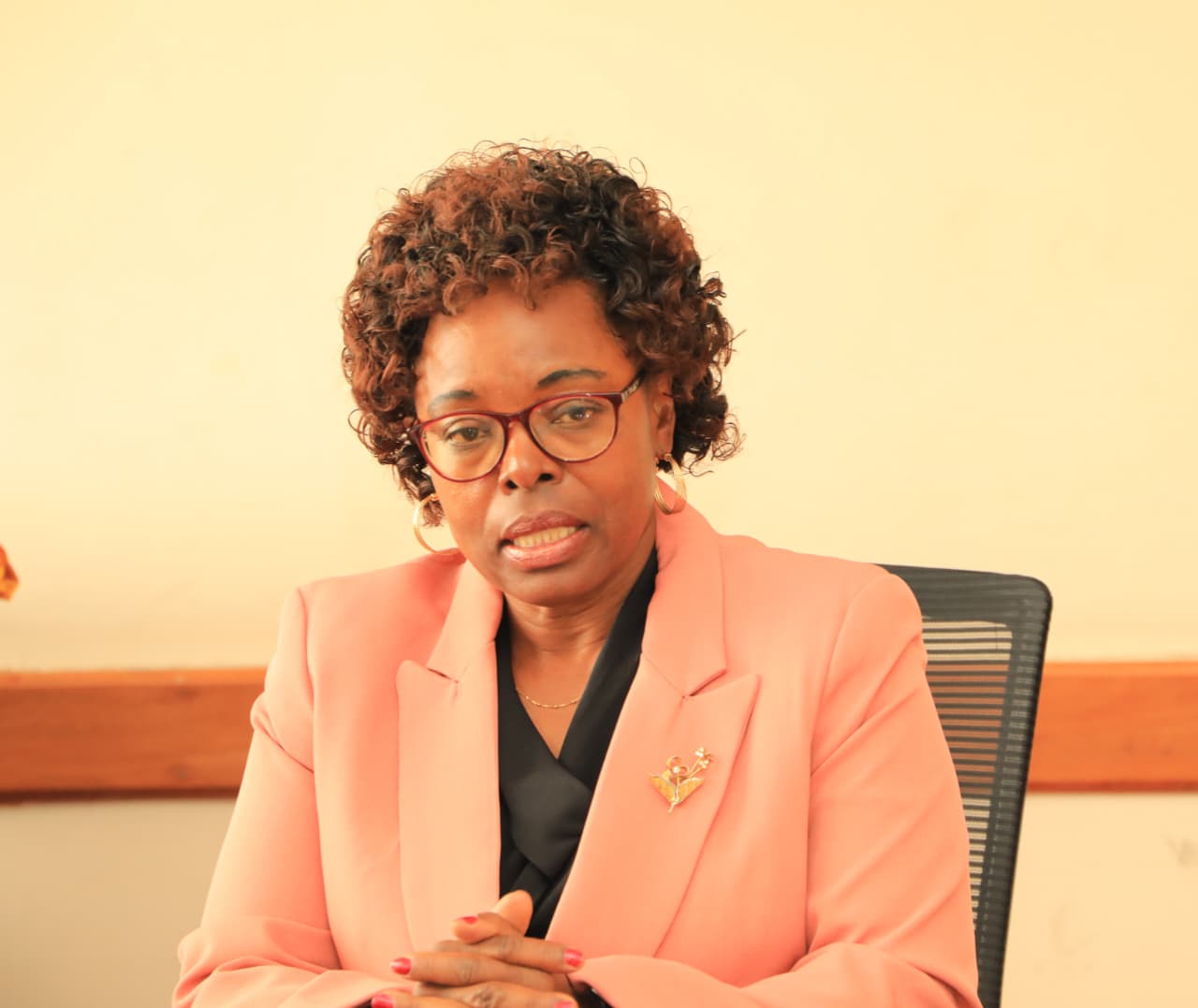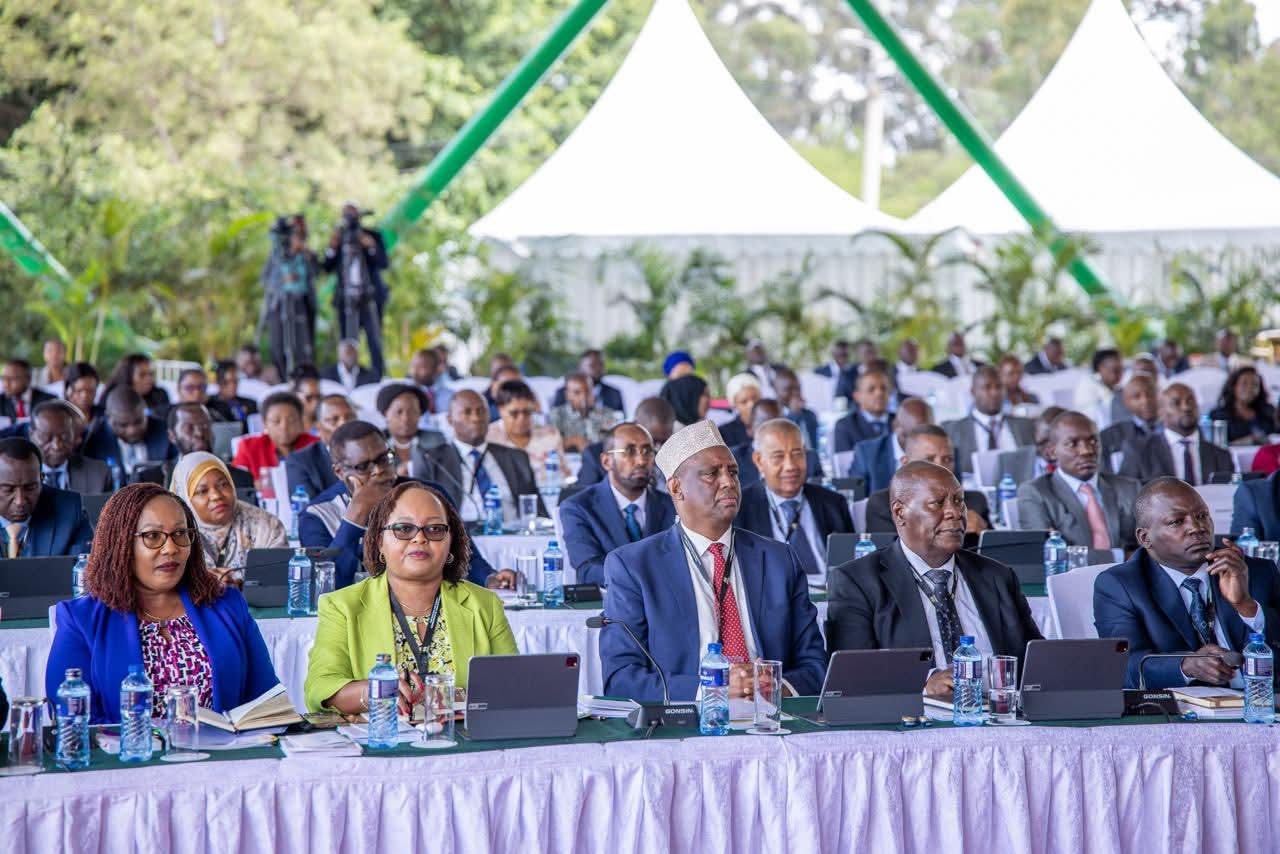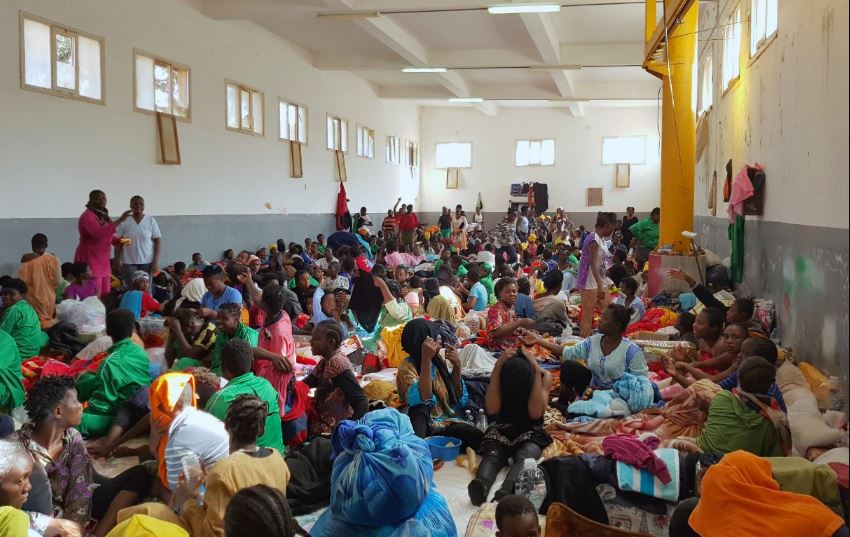How vertical bag farming is benefitting drought-hit women in Isiolo
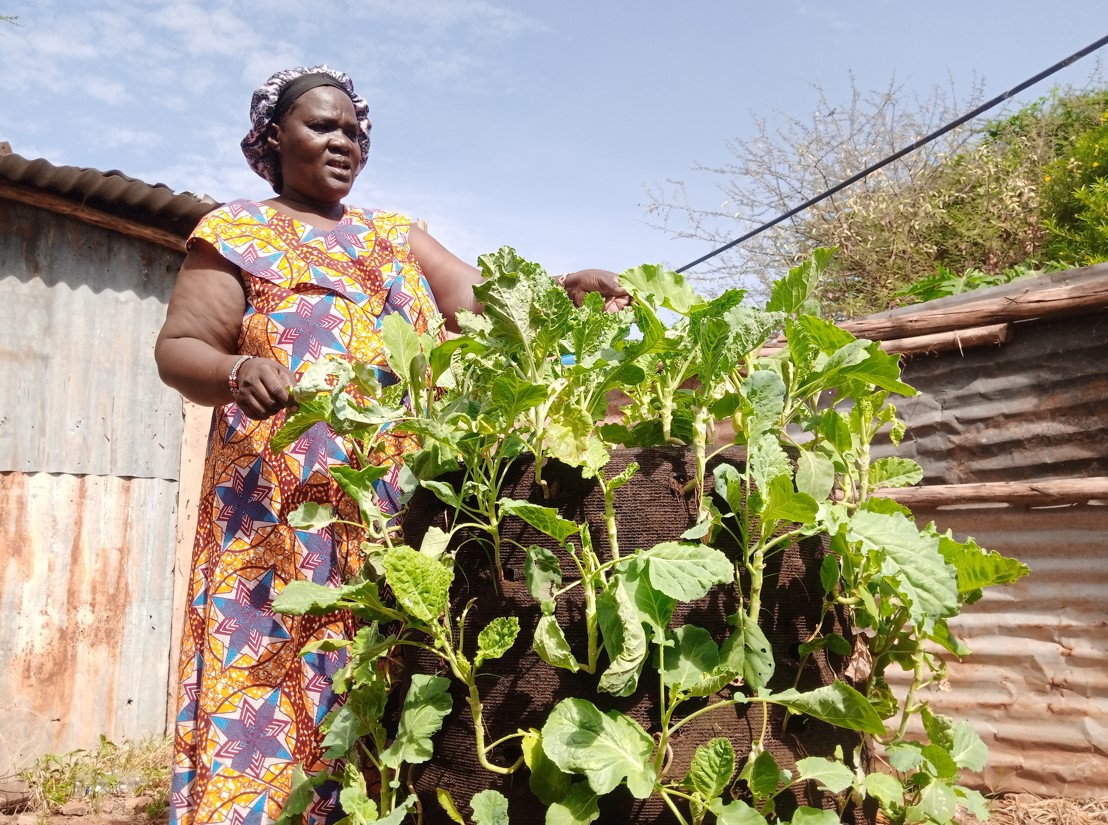
The women, who were most affected by the recent drought, are now growing vegetables both for consumption and income generation.
When the recent drought — which was Kenya’s worst in four decades — struck the country, the nation’s food security and livelihoods for millions of people in 31 arid and semi-arid counties were threatened.
The catastrophe laid bare the vulnerabilities of pastoralist and agro-pastoralist communities.
More To Read
- 20 counties record zero development spending in first quarter - CoB
- Isiolo side Odha FC, coach face year-long FKF suspension after playoff chaos
- Rival Isiolo speakers face Senate over audit failures
- Court dismisses petition to remove Governor Guyo over alleged party defection, sets strict rules for party switching
- Isiolo courts investors as county pushes public–private partnerships in economic transformation drive
- Senate summons Isiolo, Kericho governors for skipping audit hearings
The five failed consecutive rainy seasons resulted in the drying of water sources and depletion of pastures, which, besides igniting resource-based conflicts, left animals emaciated and dying in droves, causing pastoralists untold suffering and losses worth billions of shillings.
Women, who are primarily involved in planting, harvesting and also taking care of children, were hardest hit by the drought. They had to walk longer distances in search of water, which made them spend less or no time on income-generating activities, exposing the children to hunger.
According to the World Economic Forum, women own less than 20 per cent of the world's land and even less in developing countries. Their potential remains underutilised due to limited access to and control of resources such as land, markets, technologies, farm inputs, credit and training.
In Isiolo, where more than half of the county’s population was rendered food insecure, a group of 22 women who were cashing in on crop farming were dismayed after River Isiolo dried up.
They used its water to irrigate their onion and tomato farms in Burat Ward.
Illegal water connections
Over-abstraction and illegal water connections upstream were also blamed for the reduced water levels downstream.
“We used to pump water to the two-acre farm using a generator and supplied tomatoes, onions and vegetables to local markets and neighbouring counties. But when the river dried up, we quit farming,” said Kuresha Bille, the chairperson of the group known as Akienyi.
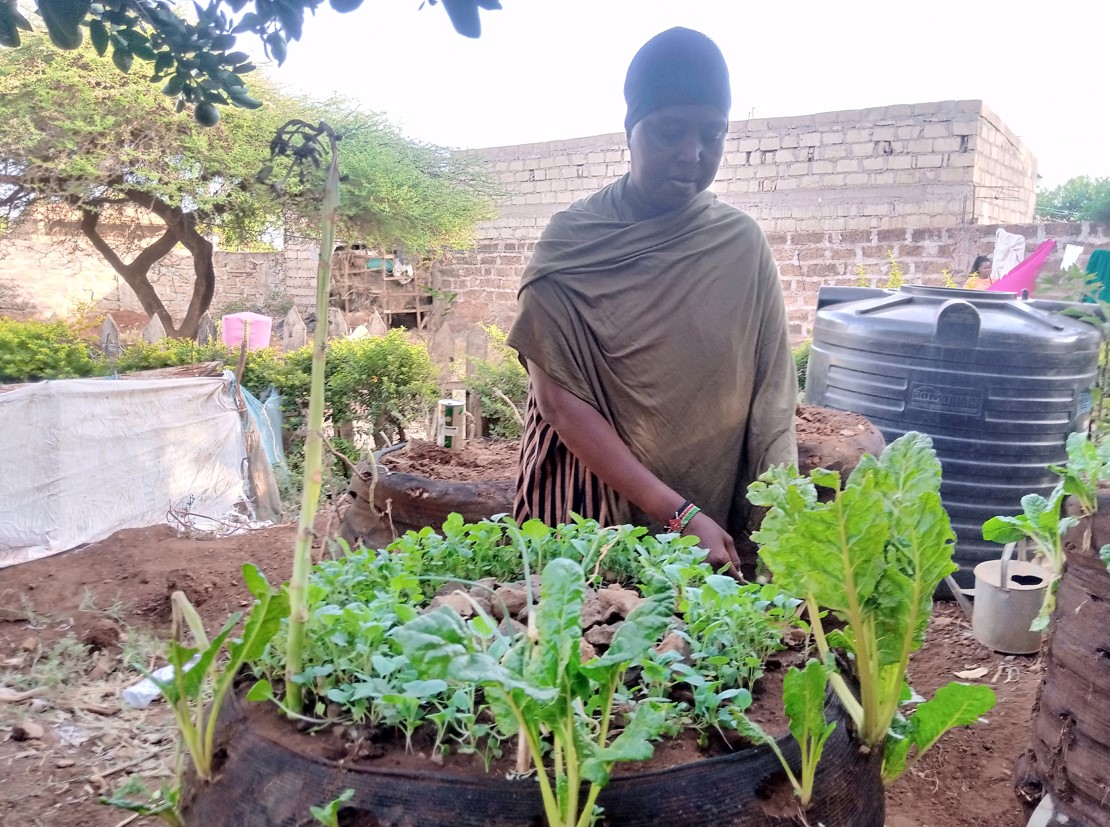 Kuresha Bille attends to her vertical bag at Sacred Heart area in Bulapesa ward, Isiolo County on March 22, 2024. (Photo: Waweru Wairimu)
Kuresha Bille attends to her vertical bag at Sacred Heart area in Bulapesa ward, Isiolo County on March 22, 2024. (Photo: Waweru Wairimu)
Many of the group’s members started selling goats while some got into charcoal burning as they sought a source of income to enable them to actively participate in their savings and loans activities.
Last year, training on climate change and diversification of livelihoods introduced the group to vertical bag technology, which is gaining popularity in the region for its minimal use of space and increased water efficiency.
The training by Isiolo Gender Watch culminated in the formation of the Eveready Grassroots Women Network which brought together 27 groups in Burat Ward.
The durable farming bags that come in various sizes are pre-punched with holes that accommodate between 40 to 135 plants and use vertical space to maximize on land. The bags are filled with the soil from which the plant grows.
The soil is emptied every seven months for vegetables and four months for sweet potatoes, and the process is repeated from time to time.
At her home in Bulapesa, Kuresha has installed vertical bags that hold kale, spinach and the highly nutritious orange-fleshed sweet potato plants.
“This type of farming has helped improve our food and nutritional security. We no longer buy kales because we have enough to eat and sell, earning us some little income,” she says, adding that their children no longer sleep on empty stomachs.
Each of the group’s members bought a pair of the locally produced vertical bags at Sh1,200 and donated one to the group, Kuresha says.
“Cases of diarrhoea in our children, which we suspect could have been caused by unsafe foods that we purchased from the local market, have rapidly reduced after we started eating our produce which has no chemicals,” Kuresha says.
 A sample of a vertical bag used by women farmers in Isiolo County. (Photo: Waweru Wairimu/EV)
A sample of a vertical bag used by women farmers in Isiolo County. (Photo: Waweru Wairimu/EV)
Emejen Women's Group, which previously cultivated green grams and beans before their production was adversely affected by water shortages, has also embraced vertical bags to produce food for home consumption.
“Some of us who had resorted to charcoal burning to make ends meet are now involved in a greening programme as they seek to reverse the negative impacts of tree felling on the environment,” one of the members, Celine Aspital, said.
Adaptation
She said the interventions are slowly helping them adapt to the unpredictable weather patterns which affect food security.
Consolata Lomilio is among the women currently preparing their vertical bags in readiness for planting.
“We were trained on how to set up before purchasing the bags which are economical in space use. I want to plant vegetables for my use and also sell to my neighbours to earn some little income,” Consolata says.
Besides the provision of certified seeds, the county’s agricultural extension officers have been offering technical support to local farmers for improved productivity.
The county government previously issued smaller vertical bags to pastoralists who wanted to diversify their livelihoods to support them in starting kitchen gardens.
“The challenge was lack of follow up which made many farmers abandon them. The one by the non-governmental organisations is doing well because we have to account for the progress and share challenges which we are helped to tackle,” one of the farmers said.
Isiolo Gender Watch Executive Director Grace Lolim said the empowerment of the 27 women groups was aimed at supporting them to shun economic activities that destroyed the environment.
“We wanted to build their resilience to climatic shocks and help them beat hunger. The diversification will also help reduce gender-based violence cases as women will now be able to assist their husbands in providing for their families, reducing the pressure on the men,” Lolim told The Eastleigh Voice.
Having brought on board groups that were involved in massive charcoal burning in Burat, the programme also targeted women in neighbouring Bulapesa, who were the users of the charcoal.
Past studies show increased yields of between 20 and 30 per cent could be achieved globally if women farmers are given the same access to resources, such as land, technology and finance, as men.
That would eliminate hunger for an additional 150 million people and help reduce malnutrition by 12 to 17 per cent.
Top Stories Today

